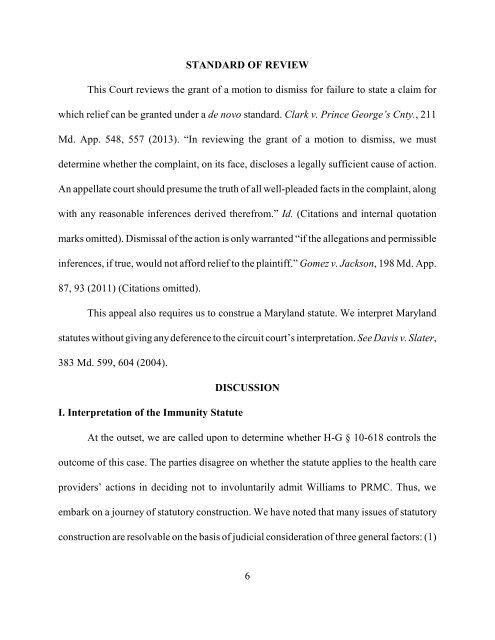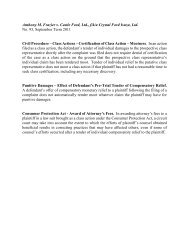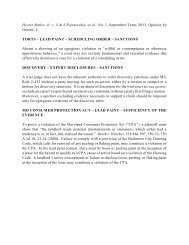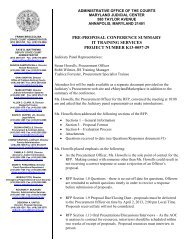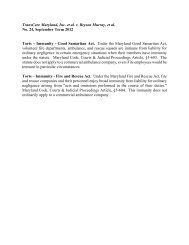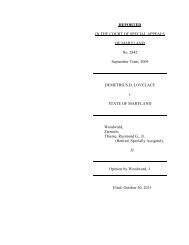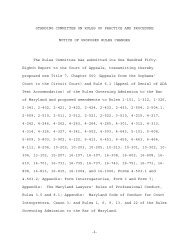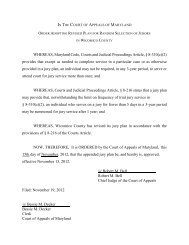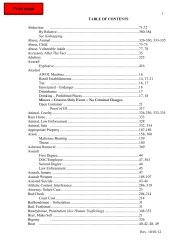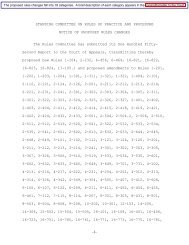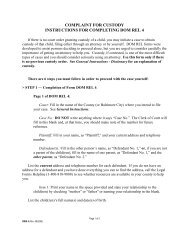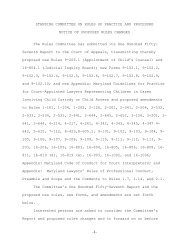0284/12 - Maryland Courts
0284/12 - Maryland Courts
0284/12 - Maryland Courts
Create successful ePaper yourself
Turn your PDF publications into a flip-book with our unique Google optimized e-Paper software.
STANDARD OF REVIEW<br />
This Court reviews the grant of a motion to dismiss for failure to state a claim for<br />
which relief can be granted under a de novo standard. Clark v. Prince George’s Cnty., 211<br />
Md. App. 548, 557 (2013). “In reviewing the grant of a motion to dismiss, we must<br />
determine whether the complaint, on its face, discloses a legally sufficient cause of action.<br />
An appellate court should presume the truth of all well-pleaded facts in the complaint, along<br />
with any reasonable inferences derived therefrom.” Id. (Citations and internal quotation<br />
marks omitted). Dismissal of the action is only warranted “if the allegations and permissible<br />
inferences, if true, would not afford relief to the plaintiff.” Gomez v. Jackson, 198 Md. App.<br />
87, 93 (2011) (Citations omitted).<br />
This appeal also requires us to construe a <strong>Maryland</strong> statute. We interpret <strong>Maryland</strong><br />
statutes without giving any deference to the circuit court’s interpretation. See Davis v. Slater,<br />
383 Md. 599, 604 (2004).<br />
DISCUSSION<br />
I. Interpretation of the Immunity Statute<br />
At the outset, we are called upon to determine whether H-G § 10-618 controls the<br />
outcome of this case. The parties disagree on whether the statute applies to the health care<br />
providers’ actions in deciding not to involuntarily admit Williams to PRMC. Thus, we<br />
embark on a journey of statutory construction. We have noted that many issues of statutory<br />
construction are resolvable on the basis of judicial consideration of three general factors: (1)<br />
6


